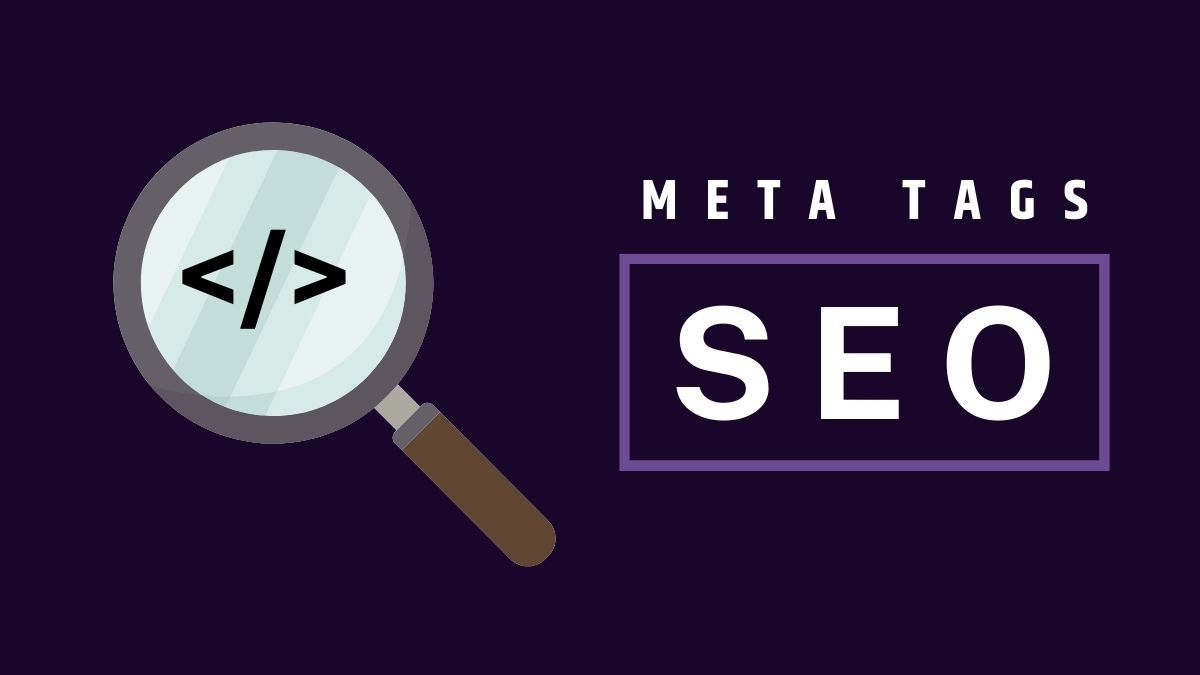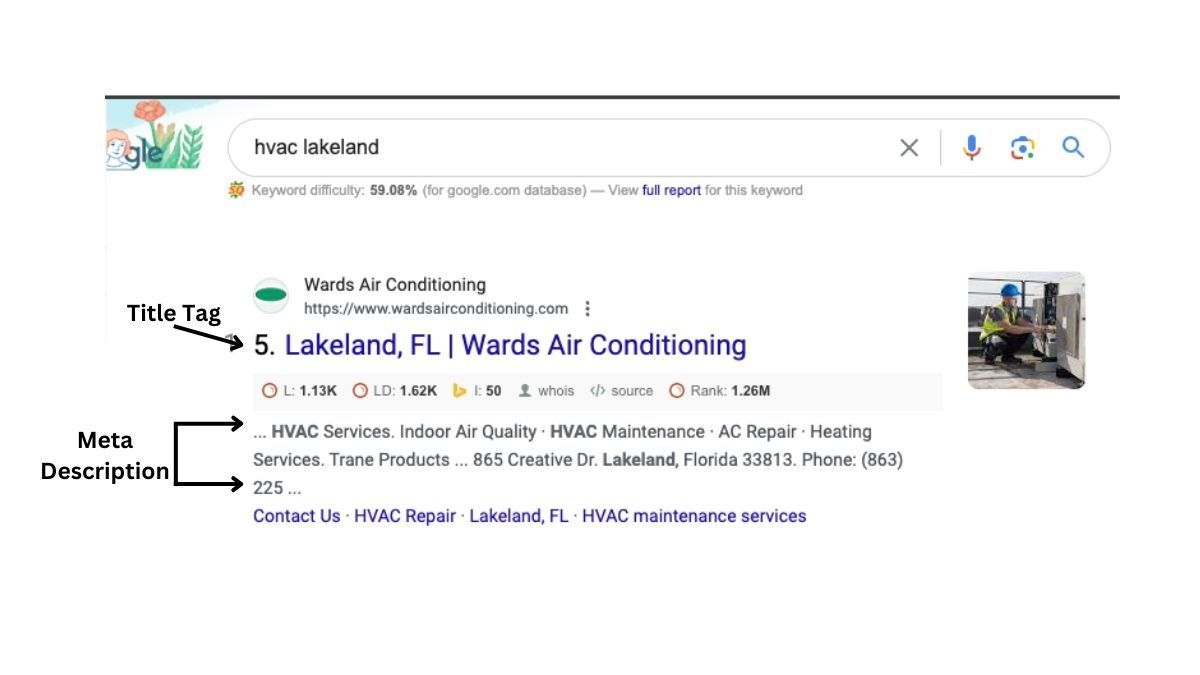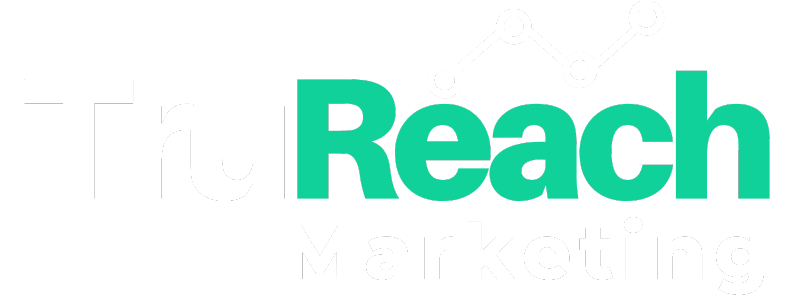Have you ever wondered why some websites rank higher than others on search engines? Imagine you're searching for something online, and the first few results almost always grab your attention. What if I told you that the secret behind this lies in a tiny piece of code known as a meta tag? That’s right! Meta tags are often the unsung heroes of
SEO success, especially when targeting specific regions like Lakeland. They may be small, but when optimized correctly, they can be the difference between ranking on page one or getting lost in the abyss of page two.
In this blog post, I'll walk you through everything you need to know about optimizing meta tags specifically for
Lakeland SEO. Whether you're new to the world of SEO or just looking to improve your local search presence, this guide will provide you with the tools and knowledge to get started.
Why Meta Tags Matter for Lakeland SEO
You might be asking yourself, "Why should I care about meta tags?" Here’s the deal:
meta tags are snippets of text that describe a page's content. They don’t appear on the page itself but in the page's code. Search engines use this information to understand what your page is about and, more importantly, to determine whether your page is relevant to a search query.
For businesses targeting
Lakeland, Florida, optimizing meta tags is crucial because it helps your website appear in local search results. The better your meta tags are optimized, the higher the chances your site will show up when someone searches for services or products you offer in Lakeland. This can be a game-changer, especially if you're in a competitive industry.
Think about it this way: if you're running a local coffee shop in Lakeland and someone searches for "best coffee shop in Lakeland," you want to be sure that your website shows up on the first page of results. Optimized meta tags can help ensure that your business is visible to potential customers who are actively looking for what you offer.
The Basics of Meta Tags: Title Tags and Meta Descriptions
Title tags and meta descriptions are the most important meta tags you need to focus on. The title tag is what appears as the clickable headline in search engine results, while the meta description is the brief snippet that provides a summary of the page's content.
To make the most out of these tags, ensure they’re concise, relevant, and include your focus keyword, like "Lakeland SEO." But that’s not all! You also need to make them enticing enough to encourage users to click on your link. For example, instead of a title like "SEO Services in Lakeland," try something more engaging like "Unlock Your Business Potential with Expert Lakeland SEO Services."
Your meta description also plays a critical role in drawing users to your website. Think of it as your elevator pitch. If you only had a few seconds to convince someone that your page is worth visiting, what would you say? Your meta description should answer this question in a clear and compelling way.
Crafting the Perfect Title Tag
When it comes to Lakeland SEO, your title tag should be no more than 60 characters and must include your target keyword as close to the beginning as possible. For instance, a title like "Lakeland SEO: Boost Your Business’s Visibility Locally" is effective because it’s direct and includes the keyword right away.
Remember, the goal is not just to rank but to make people click on your link. A well-crafted title tag balances relevancy with appeal.
In addition to including your target keyword, consider adding a power word or number to your title tag to make it even more compelling. Words like "Ultimate," "Best," or "Top" can create a sense of urgency or exclusivity, encouraging users to click. Similarly, including a number (like "5 Tips for Lakeland SEO Success") can make your title tag more appealing by promising a specific takeaway.
What is the perfect title tag for? That takes keyword research, aligning with what your page is about, and what Google is rewarding in the search.
Writing an Engaging Meta Description
A
meta description
is your opportunity to provide a brief yet compelling overview of your page. While it doesn't directly impact search rankings, it significantly influences click-through rates (CTR), which can improve your rankings over time.
For Lakeland SEO, your meta description should be around 155-160 characters, include your target keyword, and speak directly to the user's intent. A meta description like "Discover top-tier Lakeland SEO strategies to improve your local rankings and grow your business online" clearly states the value proposition while targeting the keyword.
It's important to avoid vague or generic language in your meta description. Instead, be as specific as possible about what users can expect when they click on your link. For example, instead of saying "We offer SEO services," you might say "Our expert Lakeland SEO services are designed to increase your online visibility and drive more traffic to your business."
Advanced Meta Tag Strategies: NLR and NLP Keywords
Now that we've covered the basics, let’s dive into some advanced strategies.
Natural Language Recognition (NLR) and Natural Language Processing (NLP)
keywords are increasingly important as search engines become more sophisticated. These are phrases and terms that reflect how people naturally speak or search for things online.
For instance, instead of just using "Lakeland SEO," you might consider incorporating phrases like "how to improve my Lakeland business rankings" or "best SEO tips for Lakeland businesses." These types of phrases match how real users search, making your content more relevant to their queries.
Another example of using NLP keywords could be focusing on long-tail keywords that are specific to your industry and location. For instance, if you run a dental practice in Lakeland, instead of just using "Lakeland dentist," you might optimize for "how to find the best dentist in Lakeland" or "affordable dental services in Lakeland." These phrases are more likely to match the way potential patients search for dental services, increasing the chances that your website will appear in search results.
The Role of Latent Semantic Indexing (LSI) Keywords
In addition to NLR and NLP,
Latent Semantic Indexing
(LSI) keywords play a crucial role in modern SEO. These are keywords that are semantically related to your main keyword. They help search engines understand the context of your content, which can improve your rankings.
For example, if your main keyword is "Lakeland SEO," LSI keywords could include "local search optimization," "digital marketing in Lakeland," or "online visibility for Lakeland businesses." By incorporating these into your meta tags and content, you provide a more comprehensive signal to search engines about what your page is about.
Using LSI keywords also helps to create a more natural and readable content experience for users. Rather than repeating the same keyword over and over, which can feel awkward or forced, LSI keywords allow you to talk about your topic in a more fluid and natural way. This not only improves the user experience but also helps to avoid the risk of keyword stuffing, which can harm your SEO efforts.
Optimizing for Mobile SEO in Lakeland
With more and more people using their mobile devices to search the web, optimizing your meta tags for mobile is no longer optional—it's essential. Mobile-friendly meta tags should be shorter and more concise since mobile screens display fewer characters.
For Lakeland SEO, this means keeping your title tags under 50 characters if possible and ensuring your meta descriptions are front-loaded with important information.
In addition to shortening your meta tags, it's also important to consider how your tags will appear on different devices. For instance, a meta description that works well on a desktop might be truncated on a mobile device, which could lead to important information being cut off. To avoid this, make sure the most critical details are included at the beginning of your meta tags.
Mobile optimization also involves ensuring that your website loads quickly and is easy to navigate on smaller screens. Search engines take into account the mobile-friendliness of your site when determining rankings, so it's important to make sure your site is fully optimized for mobile users.
Localized Meta Tags: The Power of Geo-Targeting
When targeting a specific location like
Lakeland, it's vital to include geo-specific terms in your meta tags. This tells search engines exactly where your business is located and which area you serve.
For instance, a title tag like "Best SEO Services in Lakeland, FL" clearly indicates your geographic focus. Similarly, a meta description that reads "Offering tailored SEO services for Lakeland businesses to dominate local search" reinforces your local relevance.
Geo-targeting not only helps you rank better for local searches but also ensures that you're reaching the right audience. After all, there's no point in ranking well for a search query if the people finding your site aren't located in your service area.
In addition to including your city or region in your meta tags, you can also optimize for local landmarks, neighborhoods, or other location-specific terms that your target audience might use in their searches. This can help you connect with users who are searching for businesses in specific parts of Lakeland or who are looking for services near a particular landmark.
Testing and Improving Your Meta Tags
SEO isn’t a set-it-and-forget-it strategy. You need to constantly test and tweak your meta tags to see what works best. Tools like
Google Search Console
allow you to monitor how your pages are performing in search results, so you can adjust your title tags and meta descriptions accordingly.
If you notice a page isn't getting many clicks, consider rewriting the title tag or meta description to make it more appealing. Perhaps it needs to be more specific, or maybe it’s not addressing the user’s intent.
Another effective way to test your meta tags is through A/B testing. By creating different versions of your title tags and meta descriptions and then testing them against each other, you can determine which ones perform best. This data-driven approach allows you to optimize your meta tags based on real user behavior, rather than relying on guesswork.
In addition to A/B testing, it's also important to stay up-to-date with the latest SEO trends and algorithm changes. Search engines are constantly evolving, and what worked well last year might not be as effective today. By staying informed and regularly testing and updating your meta tags, you can ensure that your SEO strategy remains effective over time.
Common Mistakes to Avoid in Meta Tag Optimization
Even though meta tags are small, they can have a big impact when done correctly—or incorrectly. One common mistake is
keyword stuffing, which is when you cram as many keywords as possible into your meta tags. This not only looks spammy but can also hurt your rankings.
Another mistake is making your tags too vague or generic. Tags like "Home" or "Welcome" don't tell search engines or users anything about your page, leading to lower rankings and fewer clicks.
Lastly, don’t forget to update your meta tags regularly. As your business evolves and as search engine algorithms change, your meta tags should reflect these updates to stay relevant.
Another common mistake is neglecting to optimize your meta tags for mobile users. As mentioned earlier, mobile optimization is crucial in today's digital landscape, and failing to account for how your meta tags will appear on mobile devices can result in missed opportunities. Be sure to test how your tags look on different devices and make adjustments as needed.
It's also important to avoid using the same meta tags across multiple pages on your site. Each page should have unique meta tags that accurately reflect the content of that page. Duplicate meta tags can confuse search engines and make it difficult for them to determine which page is most relevant to a user's query.
The Impact of Meta Tags on Lakeland SEO
You might still be wondering how much of a difference meta tags really make in your overall SEO strategy. The truth is, while meta tags alone won't get you to the top of the search results, they are an essential part of a well-rounded SEO approach.
When combined with high-quality content, proper keyword usage, and other SEO best practices, optimized meta tags can significantly improve your local search visibility in Lakeland. They act as a gateway, helping to draw in users who are searching for exactly what you offer.
Furthermore, well-optimized meta tags can also help to build trust with your audience. When users see that your title tags and meta descriptions accurately reflect the content of your pages, they're more likely to click through and explore your site further. This not only increases your click-through rates but can also lead to higher engagement and conversions.
Conclusion: Putting It All Together
So there you have it—a comprehensive guide to optimizing your meta tags for Lakeland SEO. By understanding the importance of title tags, meta descriptions, NLR and NLP keywords, LSI terms, and the role of geo-targeting, you can create a powerful SEO strategy that boosts your local rankings.
Remember, SEO is a marathon, not a sprint. It requires continuous effort, testing, and tweaking. But with the right approach, you'll see your business climb the search engine ranks and reach the audience that matters most—those in your local area.
By focusing on the unique needs of your Lakeland-based audience and consistently optimizing your meta tags, you'll be well on your way to achieving SEO success. So start making those changes today, and watch as your local visibility improves, bringing more traffic and potential customers to your site.
Need help with your SEO strategies? Contact us for a free consultation at
(888) 315-4769



